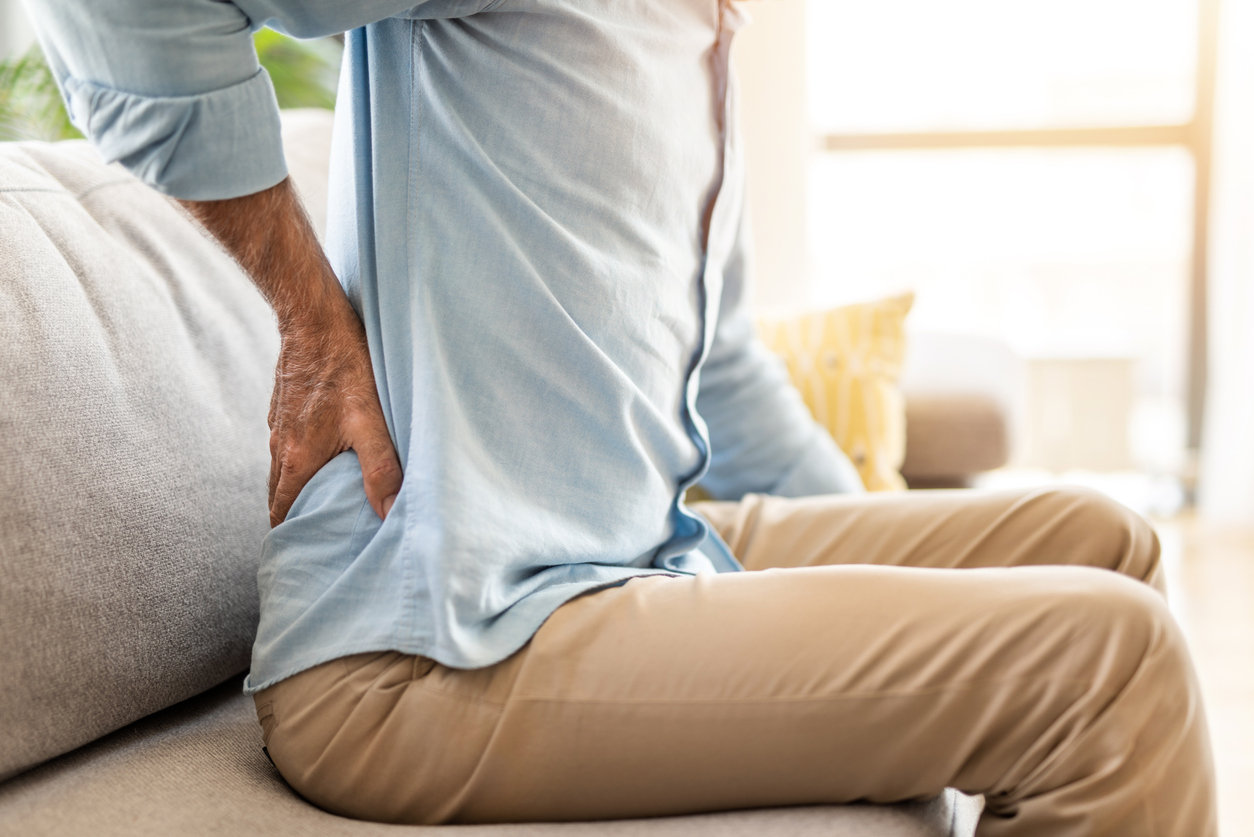Degenerative Disk Disease
Degenerative disk disease is a bit of a misnomer. It’s not really a disease. And it’s not a diagnosis that will get progressively worse, as the name suggests.
Degenerative disk disease is a common cause of back pain. And it’s a pain that our spine specialists can help you address.
What Is Degenerative Disk Disease?
The disks in your spine — from your lower back to the top of your neck — act as shock absorbers for your vertebrae and allow your spine to bend, twist and move.
However, the soft, spongy material that makes up these disks can wear away over time. As the disks degenerate, neck and back pain may follow.
What Are the Symptoms of Degenerative Disk Disease?
Pain is the most common symptom, but it can vary widely from one person to the next. Pain isn’t always related to the amount of disk damage. For example, some people with severe degeneration of their disks have only mild pain. On the other hand, those with mild disk damage may experience severe pain.
It’s common to have pain flareups that last from hours to days, weeks or months. Pain sometimes improves when standing, walking or moving around. It may also get better when you shift positions, prop up your knees or recline.
What Causes Degenerative Disk Disease?
The wear and tear of everyday activities take a toll on your disks. But natural changes to your spine as you age can also play a part.
Over time, you typically lose fluid in your spine, which makes your disks less flexible and thinner. Thinner disks shorten the distance between your vertebrae. Cracks or tears on the outer layer of your disks may also cause them to bulge, rupture or break into fragments.
Everyone’s disks deteriorate eventually, but other factors can increase the risk of developing symptoms, including:
- Excess body weight
- Repetitive lifting
- Smoking
- Sudden injury that causes a herniated disk
How Is Degenerative Disk Disease Diagnosed?
Providers do a complete exam to help determine if you have degenerative disk disease. They ask questions about your pain, possible causes and any past injuries to your back or neck. They also examine the affected area and may order tests to help make a diagnosis.
How Is Degenerative Disk Disease Treated?
We can’t stop your disks from deteriorating. But we can offer treatments that help ease your discomfort. Treatment may also help other spinal conditions, such as spinal osteoarthritis, spinal stenosis and spondylolisthesis from developing.
Treatments we offer include:
We’re Right Here to Help
With unmatched experience in diagnosing and treating spine pain, your condition will be carefully evaluated by the team of experts at the Spine Center as we work with you to develop a customized treatment plan. Highly skilled and caring providers, plus state-of-the-art technology and treatments, means you’re at the right place for exceptional patient care.
Affiliations with OrthoCincy Orthopaedics & Sports Medicine and Mayfield Brain & Spine ensure you receive the highest possible level of spine care.


